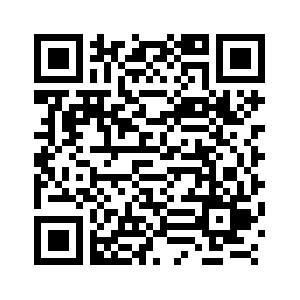World Insights: What the future holds for U.S.-Iran nuclear talks?
Source: Xinhua
Editor: huaxia
2025-05-23 16:14:45
TEHRAN, May 23 (Xinhua) -- As U.S. and Iranian negotiators gear up for a fifth round of nuclear talks in Rome on Friday, analysts warn that uranium enrichment remains the critical sticking point, but stress a breakthrough is still possible, citing both sides' incentive to avoid escalation and preserve fragile diplomatic progress.
Since the talks began on April 12, the two sides have held four rounds of indirect talks without achieving substantive breakthroughs. Recently, the United States has demanded complete cessation of Iran's uranium enrichment activities, drawing strong opposition from Tehran.
Despite the sharp division between the two sides on this issue, analysts say both Washington and Tehran remain willing to reach an agreement, and a breakthrough is still possible.
SHARP DIFFERENCE
The first round of indirect talks between Iran and the United States took place on April 12 in Muscat, the capital of Oman. Subsequent rounds were held on April 19, April 26 and May 11, respectively, with discussions gradually shifting from broad frameworks to technical details. Economic experts joined the negotiations during the third round.
On May 18, however, U.S. Special Envoy to the Middle East Steve Witkoff told reporters that the United States "cannot allow even 1 percent of an enrichment capability" for Iran, significantly raising the stakes in the negotiations.
His remarks represent a sharp departure from the previously interpreted U.S. stance, which permitted Iran to enrich uranium up to the 3.67 percent limit set by the 2015 nuclear accord.
In response, Iran's Supreme Leader Ayatollah Ali Khamenei said on Tuesday that Iran does not need anyone's permission to pursue its uranium enrichment rights.
"Iran has its independent policy and method and pursues its own agenda," he said, adding that he expects no results from the ongoing nuclear talks with Washington.
Also on Tuesday, CNN, citing several U.S. officials, reported that new intelligence suggests Israel is preparing to strike Iran's nuclear facilities. Sources revealed that the prospect of a U.S.-Iran deal that doesn't remove all of Iran's uranium "makes the chance of a strike more likely."
COMPROMISE ELUSIVE
Analysts believe the U.S. policy shift has crossed Iran's red lines on uranium enrichment, further heightening tensions.
Iran will not give up the right to conduct low-level uranium enrichment on its own soil, said Liu Lanyu, assistant research fellow at the Institute for International and Area Studies of Tsinghua University.
Iranian international affairs analyst Hassan Beheshtipour noted that although Iran has the technical capability to enrich uranium to 90 percent, this alone is not enough to build a nuclear weapon, as the country still lacks other critical technologies.
The United States focuses exclusively on Iran's enrichment activities while ignoring the broader context, he said, noting that Iran had previously experienced breaches of nuclear fuel supply agreements by the United States and other Western countries, both before and after the 1979 Islamic Revolution.
Given this track record, he argued, Iran sees no reason to fully relinquish its enrichment capabilities.
"It seems that the Americans want to implement the Libya model on Iran under the pretext of the nuclear issue, but this is not a model that Iran can accept," said Foad Izadi, an international affairs expert and professor from the University of Tehran.
Regarding the United States' new "zero enrichment" demand, Trita Parsi, executive vice president of the Quincy Institute for Responsible Statecraft, argued that this was "a rigid stance that risks sabotaging diplomacy altogether."
"Witkoff's maximalist posture may be a bargaining tactic, but airing it publicly risks poisoning the atmosphere. As soon as Iran starts reciprocating, optimism could curdle into confrontation, slamming shut Trump's narrow window for diplomacy," he wrote.
Additionally, the scope of the negotiations remains a key point of contention.
The Trump administration sought to broaden the talks to include restrictions on Iran's ballistic missile program and regional influence, said Zhao Beiping, deputy director of the Center for Middle Eastern Studies at Shandong Normal University.
Iran, however, insists the negotiations should focus solely on its nuclear program, aiming to make Washington trust its peaceful intentions and secure sanctions relief, but Washington's multiple demands have significantly complicated the path to an agreement, he said.
Given all this, experts are not optimistic about the negotiations' prospects. Qin Tian, deputy director of the Middle East Studies Institute at the China Institutes of Contemporary International Relations, said that the United States and Iran are currently caught in a standoff over "who blinks first," with neither side showing strategic trust.
TALKS CONTINUE, HOPE REMAINS
Despite the difficulties, analysts point out that the United States and Iran remain open to negotiations, and indirect dialogue channels are still functioning, which is a positive sign. Some believe that a deal is still possible.
Washington's recent push for "zero enrichment" might be a tactic to gain more bargaining leverage, said Beheshtipour, the Iranian international affairs expert.
Both sides seem inclined toward reaching an agreement, and a complete breakdown of talks in the short term is unlikely, though it's unclear how common ground will be found, he said.
The Trump administration favored a "transactional" diplomacy style. Given both parties' interest in avoiding escalation and protecting their respective national interests, a "major deal" remains theoretically possible, said Zhao Jun, associate research fellow at the Middle East Studies Institute of Shanghai International Studies University.
He noted that the involvement of a third party could be a key variable in breaking the deadlock.
If a third party with regional or global strategic influence joins the mediation effort and gains recognition from both sides, there could be room for limited breakthroughs in the negotiations, he said. ■



